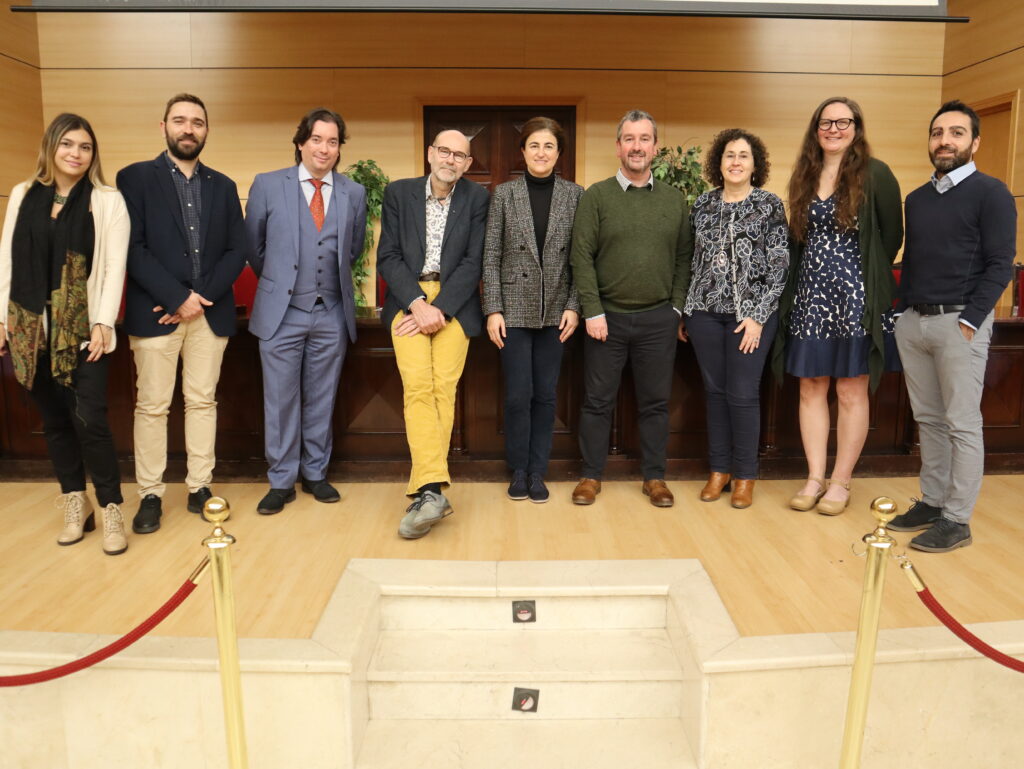IMDEA Materials Institute and the Technical University of Madrid (UPM) recently celebrated the first Open Innovation and Industrial Workshop, marking the 18-month point of the iMPLANTS-CM project.
The main objective of iMPLANTS-CM, funded by the Community of Madrid, is the development of a new generation of intelligent implants through the use of additively-manufactured metamaterials with shapememory alloys.
These implants will be implanted through minimally invasive procedures and will be able to physically evolve depending on the healing, growth and ageing process of the patient.

The workshop, held at ETSI Industriales, featured presentations from several researchers involved in the project, including principal investigators Prof. Jon Molina from IMDEA Materials and Prof. Andrés Díaz Lantada from the UPM.
Another of the featured speakers was Prof. Iain Todd from the University of Sheffield, a member of the iMPLANTS-CM International Advisory Board (IAB) and expert in the fields of metallurgy and additive manufacturing.
Prof. Todd said he had been impressed with the results generated thus far during the first half of the three-year project.
“The project’s come up with some really brilliant ideas, particularly around the formation of articulated joints and these live actions structures that are being developed in polymers,” he said. “The next step is to think about how these can be made in metals. That next step is a greatly challenging one, as is the expansion of the work being done into incorporating electronics into the prosthetics they are making.”
Prof. Todd was one of four members of the project’s IAB present, alongside Prof. Silvia de la Flor López from the Universitat Rovira I Virgili in Tarragona, Prof. Marco Harmsen from the University of Groningen in the Netherlands and Prof. Carmelo de Maria from the University of Pisa, Italy.
Presentations ranged in topics from the more fundamental materials science and research being carried out into the creation of smart, shape-memory alloys and polymers, to the additive manufacturing of energy-saving materials and trends in regenerative medicine.
Prof. de Maria highlighted the fact that with the first half of the project now complete, the project would begin to turn its focus from the conceptual design phase to the fabrication and testing of innovative new materials.
“So far, I have been impressed by the quality of the results…and now the process begins of moving from conceptual designs to real-world applications, solving some manufacturing problems and finding case studies to demonstrate the potential of these design processes.”
Joining their national and international colleagues on the stage were IMDEA Materials’ researchers Dr. Jennifer Patterson, Dr. Teresa Pérez Prado and Dr. Mónica Echeverry Rendon. Gemma Espinosa Expósito, Head of the Research Programs Area for the Community of Madrid was also on hand to present opening remarks.
The iMPLANTS-CM project hopes to reinvent medical 4D printing, providing personalised healthcare options to patients far beyond what is currently available.
Speaking to the overall significance of the project, Prof. Harmsen pointed to the wide variety of future applications envisaged for the technology currently under development.
“We have here a group of people who are focusing on new ways to prepare and print metals into devices that have very versatile uses [ranging] from appliances that you have at home to biomedical implants,” he said. “And I also think that is very important to mention that they can do it here [in Madrid], and there are not many groups in Europe that can compete with that.”

